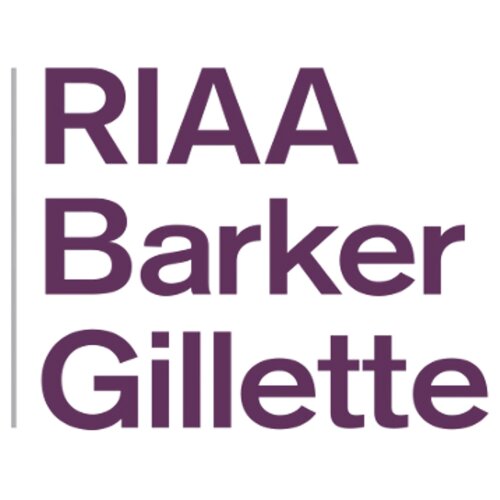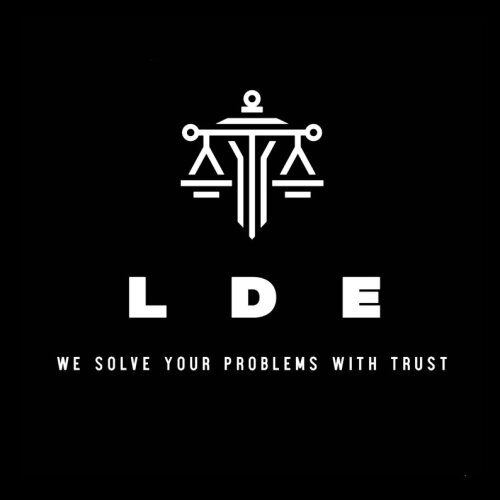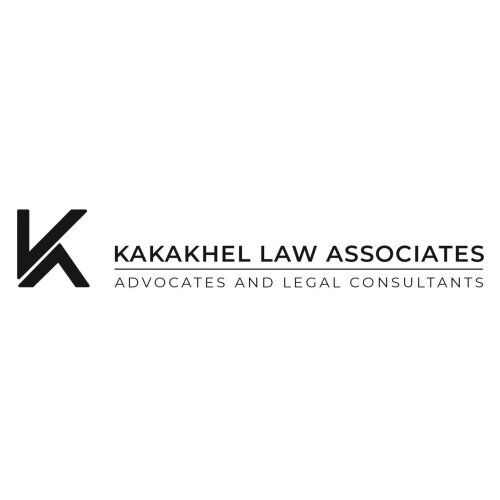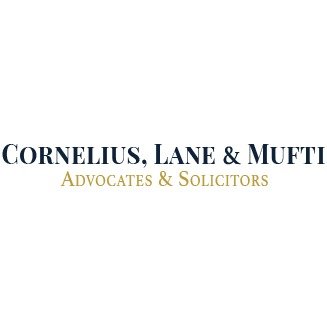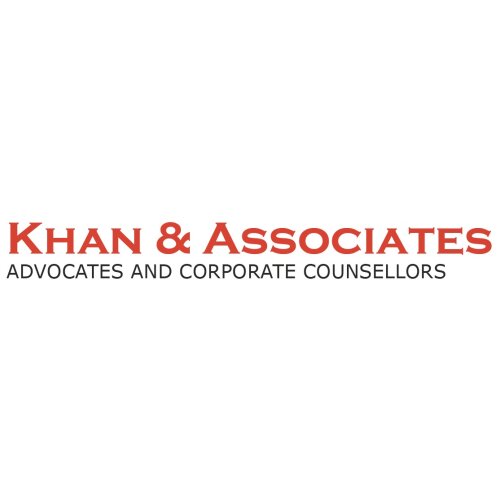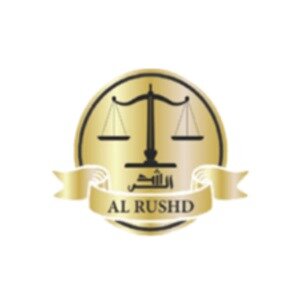Best Water Law Lawyers in Islamabad
Share your needs with us, get contacted by law firms.
Free. Takes 2 min.
List of the best lawyers in Islamabad, Pakistan
About Water Law in Islamabad, Pakistan
Water Law in Islamabad, Pakistan, comprises the legal principles and regulations that govern the ownership, use, development, conservation, and management of water resources. As the federal capital, Islamabad falls under both national and local water-related statutes, administrative regulations, and policies that address water supply, sanitation, pollution control, irrigation rights, groundwater extraction, and environmental protection. The legal framework seeks to ensure equitable and sustainable utilization of water, prevent contamination, regulate distribution, and protect public health and the environment.
Why You May Need a Lawyer
Engaging a lawyer with expertise in Water Law can be essential when facing issues involving water access, distribution, contamination, or regulatory compliance. Common situations where individuals, businesses, or communities may require legal assistance include:
- Disputes over water rights or access between neighbors, housing schemes, or communities
- Legal challenges against factories or businesses polluting water sources
- Facing penalties for unauthorized groundwater extraction or illegal water connections
- Negotiating contracts for water provision in commercial or residential developments
- Seeking compensation or enforcement when water supply is cut off or contaminated
- Understanding compliance requirements related to water quality, sanitation, and wastewater management
- Representing public interest in cases against government agencies or private parties for water mismanagement
- Resolving boundary disputes involving water bodies or irrigation channels
A skilled lawyer can advise on the relevant laws, represent you in negotiations or court proceedings, and protect your rights to ensure lawful and fair outcomes.
Local Laws Overview
In Islamabad, several legal instruments govern water management and usage. Key aspects include:
- Islamabad Capital Territory (ICT) Regulations: Islamabad’s development and water management are regulated by the Capital Development Authority (CDA), which sets standards for supply, distribution, fees, and conservation. The ICT Administration is also involved in enforcing water quality and environmental standards.
- Legal Limitations on Groundwater Extraction: Laws restrict the drilling of private wells and boreholes without obtaining proper permits from relevant authorities.
- Public Health Acts: These laws mandate water purity for human consumption and outline action against contamination of drinking water sources.
- National Environmental Quality Standards (NEQS): Set under the Pakistan Environmental Protection Act 1997, NEQS regulate discharge of wastewater and pollution into natural water bodies.
- Laws Related to Watercourse and Canal Irrigation: For areas bordering agricultural land, traditional water rights and the Irrigation Act may be relevant.
- Licensing, Tariffs, and Regulation of Supply: CDA’s Water Supply Wing regulates the commercial and domestic supply of water, including meter installation, billing, and penalties for non-compliance.
Frequently Asked Questions
What government bodies regulate water supply and management in Islamabad?
The Capital Development Authority (CDA) is the primary agency managing public water supply, treatment, and distribution in Islamabad. The Pakistan Environmental Protection Agency (Pak-EPA), and the ICT Administration also play significant roles in regulation and enforcement.
Can I legally dig my own borewell in Islamabad?
No, individuals and businesses are not permitted to dig borewells or extract groundwater without obtaining explicit permission from the CDA and compliance with environmental regulations.
What should I do if my water supply has been contaminated?
Report the issue to the CDA Water Supply Wing and ICT Administration immediately. You may also seek legal redress through local courts or environmental tribunals, especially if contamination poses a health risk.
Are there separate laws for commercial and residential water use?
Yes, water permits, tariffs, and usage rights often differ for commercial and residential properties. Regulatory authorities enforce different standards and billing for each category.
What actions are illegal under water law in Islamabad?
Illegal actions include unlicensed extraction of groundwater, tampering with water meters, illegally connecting to water mains, polluting water sources, and non-payment of water dues.
How can I resolve a neighbor dispute over shared water resources?
You may attempt mediation through the CDA or lodge a complaint with local authorities. If unresolved, civil litigation with the help of a Water Law lawyer might be necessary.
What penalties exist for non-compliance with water laws?
Penalties range from fines, disconnection of water supply, and compensation for damages, to possible imprisonment in severe cases such as deliberate contamination or persistent illegal extraction.
Can industries and factories be held accountable for polluting water in Islamabad?
Yes, businesses are legally required to treat wastewater and comply with NEQS. Failure to do so can lead to legal action, fines, and even closure of the offending facility.
Is rainwater harvesting regulated in Islamabad?
Rainwater harvesting is encouraged as a water conservation measure. Regulations may require certain developments to incorporate rainwater management systems, especially for new housing schemes.
How can I check if my water source is legally permitted?
Contact the CDA Water Supply Wing for verification of your connection or borewell permit. Review your documentation or seek legal advice if you are unsure about your compliance.
Additional Resources
Here are some government bodies and organizations relevant to Water Law in Islamabad:
- Capital Development Authority (CDA) - Water Supply Wing
- Pakistan Environmental Protection Agency (Pak-EPA)
- Islamabad Capital Territory (ICT) Administration
- PWD (Public Works Department) Islamabad
- Federal Ministry of Water Resources
- Provincial Irrigation Departments (for surrounding agricultural zones)
- Legal Aid Clinics and Environmental NGOs working on water rights
Next Steps
If you require legal assistance in Water Law:
- Document your issue with dates, evidence, and any correspondence with authorities
- Consult with a Water Law specialist or legal aid service familiar with Islamabad’s regulations
- Contact relevant departments such as the CDA or Pak-EPA for initial guidance
- If your issue is urgent or threatens health, request immediate intervention from local authorities
- If a dispute escalates, your lawyer can help mediate, negotiate, or file a case in the appropriate court or tribunal
- Stay informed about your obligations as a water user to ensure compliance and avoid penalties
Seeking professional legal advice early can safeguard your rights and help navigate the complexities of Water Law in Islamabad.
Lawzana helps you find the best lawyers and law firms in Islamabad through a curated and pre-screened list of qualified legal professionals. Our platform offers rankings and detailed profiles of attorneys and law firms, allowing you to compare based on practice areas, including Water Law, experience, and client feedback.
Each profile includes a description of the firm's areas of practice, client reviews, team members and partners, year of establishment, spoken languages, office locations, contact information, social media presence, and any published articles or resources. Most firms on our platform speak English and are experienced in both local and international legal matters.
Get a quote from top-rated law firms in Islamabad, Pakistan — quickly, securely, and without unnecessary hassle.
Disclaimer:
The information provided on this page is for general informational purposes only and does not constitute legal advice. While we strive to ensure the accuracy and relevance of the content, legal information may change over time, and interpretations of the law can vary. You should always consult with a qualified legal professional for advice specific to your situation.
We disclaim all liability for actions taken or not taken based on the content of this page. If you believe any information is incorrect or outdated, please contact us, and we will review and update it where appropriate.



